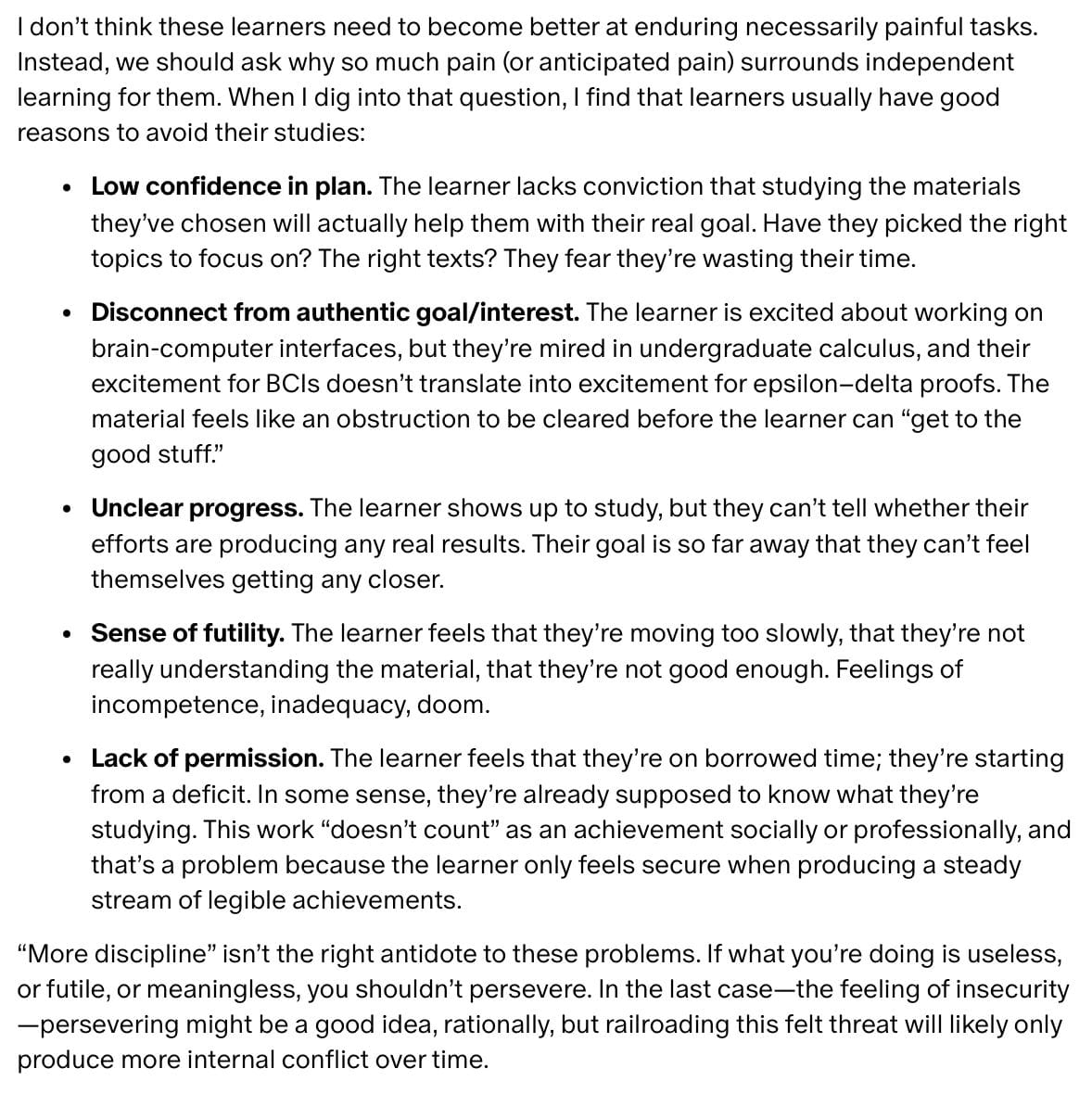93. Learning Is Always Fun (Repost)
Edit: The link to Andy's tweet was incorrect. Sorry!
Andy Matuschak shared some insights he had while helping adults learn. It probably will resonate with you and your experience. Read Andy's tweet below.
In my work with adult learners, conversation often focuses on materials, tools, and techniques—but the main bottleneck is often trouble actually siting down to study consistently. Learners usually feel sheepish about this and prescribe themselves "more discipline".
— Andy Matuschak (@andy_matuschak) September 7, 2024
But often I… pic.twitter.com/kAvKdasGC4
Andy goes further in a snapshot of one of his essays.

David Deutsch mentions in The Evolution Of Culture:
I once heard a former Public-School1 pupil remark: “the purpose of a Public School is to cause distinctive scars, by which its inmates will be recognisable for the rest of their lives”. He was likening the psychological damage that he deemed to have been left by his schooling to the physical mutilations by which many cultures mark their members. This may seem a far-fetched analogy, but it is quite the opposite.
I thought I would share my response to Andy Matuschak's tweet in the hope that it would give a fuller view of learning and how it is always fun, noting that when it is not fun it is not learning.
Everyone has their theory of fun which is typically unconscious. You are correct in criticizing the dismissal of this theory for they have not evaluated its content. Just because something is unconscious does not mean we should ignore it.
On the other hand, though this theory of fun is unconscious it also doesn't make it right by default. It may usually be right, but we should not accept a theory without evaluating its content. The challenge, then, becomes to find ways to understand our unconscious ideas.
If we accept or reject our ideas of fun without understanding them, we miss an important part of learning - learning about ourselves. But a more important lesson is lost - learning when we are wrong.
And once we learn we can be wrong we realize how often we are wrong. Eventually, we learn that, too, was wrong. It was wrong to think that we were our ideas. Sometimes, the ideas do not even belong to us. Nevertheless, we continue. We discover more errors, correcting them as we go on until suddenly, it hits us - we are having so much fun.
Summary:
- We all have unconscious ideas about what we find fun.
- These theories shouldn't be ignored, even though they are unconscious.
- They aren't necessarily correct either.
- The challenge is to understand these unconscious ideas.
- Accepting or rejecting ideas without understanding them prevents learning about ourselves.
- It more importantly prevents recognizing when we are wrong.
- When we learn, over time we see how often we are wrong.
- We learn that we are not our ideas, which helps us detach from them.
- Discovering and correcting errors is enjoyable leading to true fun in learning.
